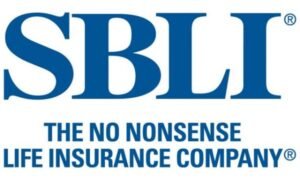
Term Life Insurance
In this review, we explore the different aspects of term life insurance, including its drawbacks, how it works, and how to choose the best policy for your needs.
If you are looking for life insurance, you may want to consider term life insurance. This type of insurance provides coverage for a set period of time, usually 10, 20, or 30 years, and pays a death benefit to your beneficiaries if you die during that time. However, as with any financial product, there are pros and cons to term life insurance.
What Is Term Life Insurance?
Is a type of life insurance policy that provides coverage for a specific period of time, known as the term? The policyholder pays a premium to the insurance company and if the policyholder dies during the term, the insurance company pays a death benefit to the beneficiaries named in the policy. It is often used to provide coverage for a specific financial obligation, such as paying a mortgage or supporting children into adulthood.
Is Term Life Insurance Worth It?
There are several advantages to choosing term life insurance:
- Affordability – It is often less expensive than other types of life insurance, such as term life insurance or universal life insurance.
- Flexibility – It allows you to choose the term of coverage that best suits your needs, whether it’s 10, 20, or 30 years.
- Simplicity – It is a simple product that is easy to understand. There are no complicated investment or savings components in the policy.
- Provides peace of mind – Knowing that your beneficiaries will be taken care of in the event of your death can provide a sense of security and peace of mind.

What Are The Disadvantages Of Term Life Insurance?
There are also some drawbacks to consider when choosing term life insurance:
- Cover ends – Once the term of the policy ends, the cover ends and you may have to renew the policy at a higher premium. If you survive the term, you will not receive a death benefit.
- No Cash Value – its policies have no cash value. Unlike permanent life insurance, there is no savings or investment component in the policy.
- No return on investment – Because it has no savings or investment component, you will not receive a return on your investment.
Does Term Life Insurance Really Pay?
Yes, it pays out if the policyholder dies during the term of the insurance. However, it is important to note that there are circumstances where the insurance company may reject the claim, such as if the policyholder lied on their application or engaged in risky behavior that was not specified on the application. It is important, to be honest, and transparent when applying for life insurance to ensure that your beneficiaries receive the death benefit if you pass away.
Which Is Better: Term Life Insurance Or Life Insurance?
Whether term life insurance or life insurance is better depends on your individual needs and circumstances. Life insurance is a type of permanent life insurance policy that provides coverage for your entire life and has a savings or investment component.
It is more expensive than term life insurance but offers lifetime coverage and a guaranteed cash value component. On the other hand, term life insurance is less expensive and provides coverage for a specific period of time, but has no savings or investment component.
Which Bank Is Best For Term Life Insurance?
Many banks offer this insurance, but the best one for you will depend on your individual needs and circumstances. Some factors to consider when choosing an insurance bank for term life include the financial stability of the bank, the reputation of the insurance company, the available policy options, and the cost of the policy. It’s important to compare policies from different banks and insurance companies to make sure you’re getting the best coverage at the most affordable price.
Term Life Rates by Age: How Much Are You Paying?
The cost of this insurance varies based on several factors, including age, health, and the term of the policy. As you get older, the cost of the insurance generally increases. For example, a 30-year-old nonsmoker in good health might pay about $20 per month for a 20-year policy with a $500,000 death benefit, while a 60-year-old nonsmoker in good health might pay about $200 per month for the same policy. It’s important to shop around for insurance rates and compare policies to make sure you’re getting the best coverage at the most affordable price.
Is Term Life Insurance Premiums Tax Deductible?
The insurance premiums are not tax deductible. This is because the IRS considers the death benefit paid as a tax-exempt estate rather than income. However, there are some exceptions where these insurance premiums are tax deductible. For example, if you are a business owner and purchase term life insurance as a business expense to protect against the loss of a key employee or business partner, you may be able to deduct the premiums as a business expense.
Even if you are self-employed and take out this insurance as part of a self-employed health insurance plan, you may be able to deduct the premiums as medical expenses. It is important to consult a tax advisor to determine your eligibility for tax deductions associated with these insurance premiums.
Cheapest Term Life Insurance
The cheapest of these insurance policies depends on several factors, including your age, health, gender, occupation, and lifestyle. Some insurance companies may also offer lower rates for policies with shorter terms, such as 10 or 15 years. To find the cheapest of this insurance policy, it’s important to shop around and compare quotes from different insurance companies.
You can start by requesting quotes online or by contacting insurance agents directly to get an idea of available pricing and coverage options. Keep in mind that while price is an important factor, it shouldn’t be the only factor to consider when choosing a TM insurance policy. You should also consider the financial strength and reputation of the insurance company, the available policy options, and the quality of customer service and support.
Can You Borrow Against Term Life Insurance?
No, you cannot borrow against this insurance. This insurance is a type of insurance policy that provides coverage for a specified period of time, usually ranging from 10 to 30 years. Unlike permanent life insurance, such as universal life insurance, term life insurance does not accumulate cash value over the time for which a loan can be made.
When you buy the insurance, you pay the premiums to the insurance company in exchange for a death benefit that is paid to your beneficiaries if you die during the term of the policy. Once the term of the policy expires, the coverage expires and there is no more money or principal to borrow against. If you’re looking for a life insurance policy that allows you to build cash value over time that you can borrow against yourself, consider permanent life insurance.
Best Term Life Insurance: Our Top Picks
When choosing the best term life insurance policy, there are several factors to consider, including the financial strength of the insurance company, the available policy options, and the cost of the policy. Here are our top picks:
Transamerica Term Life Insurance
Transamerica is an established insurer that offers a variety of term life insurance policies with flexible coverage options.

AIG Term Life Insurance
AIG is a leading insurer offering term life insurance with competitive rates and customizable coverage options.

Haven Life Term Life Insurance
Haven Life is a digital life insurance provider that offers affordable term life insurance with a streamlined application process.

30-Year Term Life Insurance: Is it Right for You?
A 30-year term life insurance policy provides 30 years of coverage and is ideal for people who need coverage for a longer period of time, such as those with small children or a long-term mortgage. However, life insurance policies with a term of 30 years are often more expensive than short-term policies such as 10 or 20 years. It is important to weigh the cost of the policy against the need for coverage and choose the term that best suits your individual needs.
The Best Term Life Insurance For Seniors
As you get older, it can become more difficult to get term life insurance and the cost of the policy can increase. However, options are still available for seniors looking for this insurance. Here are some of the best options for seniors:
- AARP Term Life Insurance: AARP offers this insurance with coverage for up to 80 years and no medical exam required.
- Mutual of Omaha Term Life Insurance: Mutual of Omaha offers this insurance with coverage for up to 80 years and no medical exam required.
- Globe Life Term Life Insurance: Globe Life offers term life insurance with coverage of up to 80 years and no medical exam required.
Conclusion
In short, term life insurance offers affordable and flexible coverage for a specific period of time. While it has no savings or investment component, it can provide your beneficiaries with peace of mind and financial security in the event of your death. When choosing this insurance, it’s important to consider the pros and cons, compare policies from multiple insurance companies, and choose the term that best suits your individual needs and circumstances.








